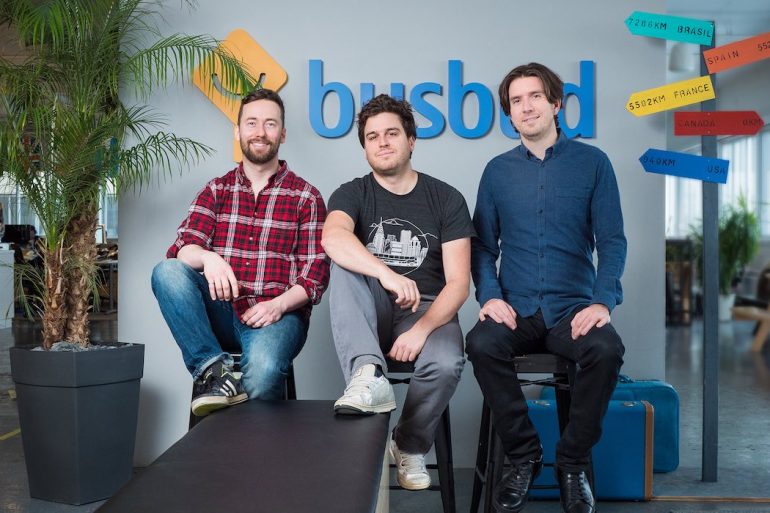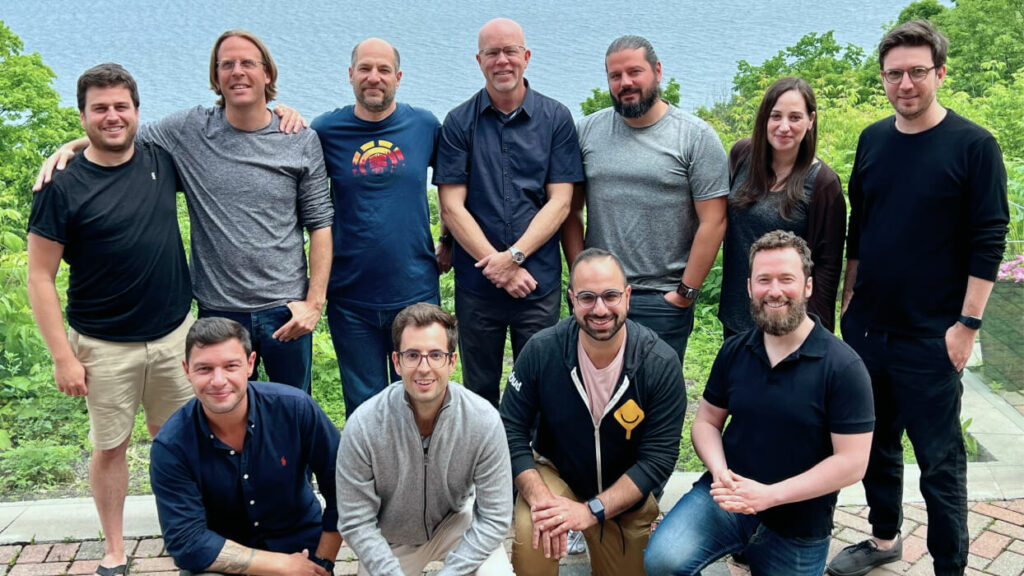Montréal-based intercity ground travel marketplace Busbud has acquired Toronto’s Betterez to bring a reservation and ticketing management platform to its network of transportation partners.
Busbud, which saw its business take a hit in 2020 amid COVID-19 concerns and restrictions, has benefitted recently from a big rebound in demand for travel. After laying off staff early in the pandemic, Busbud evolved, and the firm has seen success since expanding beyond just bus tickets to helping travellers find and book other forms of ground transportation, including train, ridesharing, and shuttle trips.
“Both companies were getting requests to provide solutions in areas that the other was stronger in.”
-Tal Shalit, Betterez
Now, the startup aims to build on that growth through its acquisition of Betterez’s business-to-business offering. With Betterez, Busbud sees an opportunity to help the transit operators using the latter’s marketplace manage their back-office operations more efficiently, which Busbud co-founder and CEO LP Maurice said has become a point of emphasis for many companies in the space as travel demand booms, inflation and fuel costs rise, and a recession looms.
The deal combines two Canadian tech startups building solutions in the ground travel vertical: Busbud with its marketplace for travellers, and Betterez with its platform for transportation players.
“We were both working at this in Canada … but really from a completely different angle,” Maurice said in an interview with BetaKit.
When Busbud and Betterez first met in 2013, they quickly realized how complementary their offerings were, and two years ago they became commercial partners. In recent months, Maurice said Busbud would receive emails on a weekly basis asking what reservation system they offered and could adopt, and often recommended Betterez. As the CEO said, “it just made sense to explore a deeper partnership.”
“Both companies were getting requests to provide solutions in areas that the other was stronger in,” Betterez founder and CEO Tal Shalit told BetaKit. “We realized that there is a tremendous amount of synergies across the companies that we could take advantage of should we join together.”
The deal closed over the summer, and Busbud and Betterez have already begun working together. Maurice declined to share the acquisition price but noted it consisted of an undisclosed combination of cash and equity. Busbud financed the cash component of the acquisition using existing cash and an undisclosed amount of follow-on funding from unnamed existing investors that Maurice said the startup raised in service of the deal.
RELATED: Busbud closes $14 million CAD, acquires Recorrido to fuel Latin American expansion
Prior to this, Busbud had raised approximately $55 million CAD from a group of investors that includes COPEC’s Wind Ventures, CBGF, EDC, Investissement Québec, Inovia Capital, OMERS Ventures, Real Ventures, BDC Capital, Plaza Ventures, Claridge, Teralys Capital, and executives from Expedia, Google, Facebook, Airbnb, and TripAdvisor.
According to Maurice, all shareholders of Betterez, including the startup’s founders, now hold stakes in Busbud. This group includes a number of big travel industry players, including Amadeus Ventures, the corporate venture arm of global travel tech provider Amadeus, JetBlue Ventures, Porter Airlines co-founder and CEO Michael Deluce, and Donald J. Carty, the former chairman and CEO of American Airlines’ parent company AMR.
Founded in 2011, Betterez offers a reservations and ticketing management platform for ground travel operators, helping customers grow through mobile ticket sales and scanning, accurate ridership reports, optimized pricing for demand, mobile shopping, upselling, and more. The startup had raised a total of $4 million USD to date prior to this deal.
Betterez’s entire team has joined Busbud as part of the deal, bringing “a decade-plus of domain expertise” in intercity bus travel into the startup’s fold that Maurice described as rare, and growing the company’s headcount to more than 150.
Maurice also described Betterez’s platform as “unique” within the space, noting that while many other players are building similar solutions for restaurants and independent retailers, very few cater to bus operators specifically.
“If you’re a bus operator, [Betterez] is the best platform to run your business on,” said Maurice, claiming that Busbud is well-positioned to make such an assessment given how many of Betterez’s competitors the startup has connected to through the years.
Prior to the deal, the two platforms were already integrated. Going forward, Busbud’s focus will be on promoting Betterez to its existing customers.
While Betterez is currently installed with 50 different partners across 12 countries, Maurice said the firm’s customers are located mainly in Canada, the United States, and Mexico. Maurice sees an opportunity to accelerate Betterez’s global expansion by putting Busbud’s global network of nearly 4,000 operator partners across more than 80 countries onto its software.
RELATED: Hopper closes $96 million USD from Capital One at more than $5 billion valuation
“Both Busbud and Betterez have been talking to our partners and felt that both companies can accomplish more, much faster, if we joined forces as soon as possible, rather than trying to do so individually,” said Shalit.
The deal marks Busbud’s third acquisition to date. Busbud has previously used acquisitions to increase its geographic reach. Earlier this year, Busbud closed $14 million CAD and acquired Recorrido to support its Latin American expansion.
The CEO didn’t rule out the possibility of more acquisitions in the near future for Busbud, noting that the startup continues to explore prospective strategic partnerships on both the ground travel tech and global expansion fronts. But according to Maurice, Busbud’s “top priority right now” is scaling up Betterez.
Maurice said it’s been an “exciting past 12 months” for Busbud given the post-pandemic travel boom. While he did not disclose specific figures, the CEO noted that Busbud’s revenue has quadrupled year-over-year, and is “significantly above” 2019 levels.
Busbud’s “top priority right now” is scaling up Betterez.
After cutting its headcount down “to a very efficient team” during COVID-19, the rebound in travel has enabled Busbud to scale up and add 20 employees over the past six months.
According to the CEO, Busbud hasn’t “had to make any hard choices” yet on the staffing front, such as freezing or slowing hiring or laying off staff, emphasizing that the company is in a good position to continue growing.
More recently, Maurice said Busbud has seen an uptick in customers eschewing more expensive forms of travel and taking the bus amid rising inflation and high gas prices. These conditions have led to “a slight increase” in the price of bus tickets.
Facing an economic downturn, Maurice sees buses as a more affordable and “essential form of travel,” given how many people take them to get to work and school, and anticipates that demand for tickets will remain strong regardless of broader market conditions.
“We actually think that we will be a little bit more resistant to the recession or upcoming recession than maybe other folks in other verticals inside of travel might be,” said Maurice.
Feature image courtesy Busbud.



